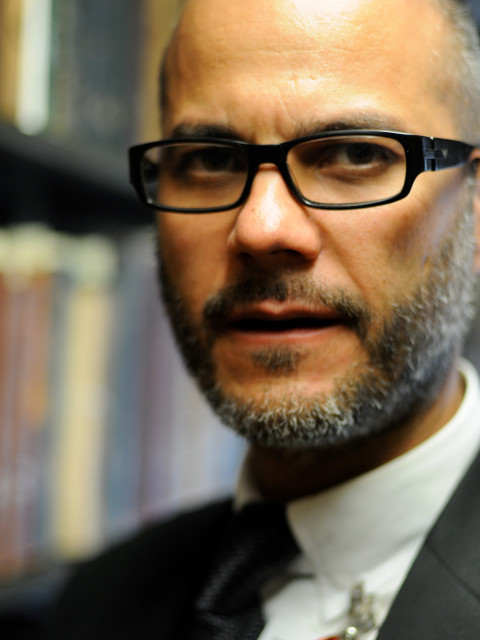
The Impact of Hurricane Ida on COVID-19
by MarkAlain Déry, DO, MPH, FACOI
Infectious Disease Specialist
August 30, 2021
I live in the heart of hurricane territory. As a public health servant in the city of New Orleans, I’m seeing the convergence of two frightening scenarios. First, unending surges of COVID-19 among the unvaccinated and second, as I look to the weather forecast, we are seeing hurricanes. We just got hit by Hurricane Ida – we’re not even 12 hours out from it yet. I can’t help but wonder how this current warning of an impending hurricane - and future storms we’re sure to see as the season continues - will foster the spread of the SARS-CoV2 virus in so many hurricane prone areas.
Last hurricane season we heard advice from emergency officials warning residents in our low-lying coastal areas to pack their masks as they prepared to evacuate. This year, the advice is GET VACCINATED. The real perfect storm is that Louisiana and many other southern states prone to hurricanes unfortunately have some of the lowest vaccination rates in the nation. Less than 50% of residents in my state, Mississippi, and Alabama are vaccinated.
Our hospitals here and across the Gulf Coast are already dealing with the biggest disaster: overwhelmed ICUs full of COVID-19 cases. For example, the University of Mississippi Medical Center has resorted to staging two field hospitals in parking garages to cope – how that will work during a hurricane is anyone’s guess.
I know the demand for healthcare after a hurricane even during normal times can be overwhelming. But now, with overfilled ICUs and stressed ERs, it is the perfect storm that has potential for creating a nightmare scenario. Even if people get vaccinated today, it will be six weeks before they are fully protected – and my guess is that we will have many, many threatening storms from now until then. Huddling together in storm shelters and emergency centers is a recipe for COVID spread.
Last year we had hurricanes Laura and Delta, and at the time they hit there were COVID patients in the hospitals but not the amount we are seeing now. Louisiana was able to house evacuees in our empty New Orleans hotel rooms, which alleviated shelter-congregating. That helped to stem the virus’s spread a bit. This year is different. Hotels are open and in some cases, they are full. It is likely people are going to be sent to shelters here and in other Gulf states where we need to evacuate populations in harm’s way.
The real fear right now is that everyone knows there is a COVID surge resulting in massive hospitalizations. People could be too afraid to evacuate due to fear of getting COVID at a shelter and if they choose to stay home, there’s storm surge, winds, and other dangers from the hurricanes that pose threats to their safety. That is why we can’t stress enough that vaccines can provide the confidence evacuees need to feel safe sheltering – with masks and social distancing still in place of course.
When it comes to hurricanes, the biggest stress on the health care system comes after the storm when people leave their homes too early and begin trying to clean up the damage with hazards around. People using chain saws when they don’t usually use such equipment leads to injuries, sometimes electrocutions. What will hospitals do if there is a new demand for emergency services when the ERs are already overflowing? Some have been converted into full-fledged COVID wards. Combine all that with a nursing shortage that some places, like Texas, are seeing, and the scenario is even more dire. In fact, COVID patients filling hospitals tend to have long-term stays – keeping beds filled for longer stretches.
As healthcare providers we need to respond and encourage individuals in hurricane prone areas to first get their first vaccine if they don’t have it already or to go out and get their second one if it is time for it. Secondly, they need to be warned to not venture out immediately after a storm until first responders can clear roadways, downed power lines can be dealt with, etc. Venturing out into unknown situations the first 24 hours after the storm is indeed very dangerous.
From a public health perspective these storms are posing dual threats: COVID spread – especially for the unvaccinated - and the usual threats that these storms bring. I tell my patients to get storm ready and to:
- Get vaccinated
- Be prepared with their evacuation kit that needs to include a mask and hand sanitizer
- Wear a mask – whether in a shelter, or if staying with friends. Find out ahead of time if the friends/family you are sheltering with are vaccinated and wear masks! I also remind them of the obvious: Continue to wash hands frequently!
- Have prescriptions ready to pack if you are evacuating.
- Pay attention to local guidance about updated plans for evacuations and shelters, please keep your pets in mind and take them with you and/or find shelters for your pets.
Sources:

